![]()
Logion 17: “I will give you what no eye has seen, what no ear has heard, what no hand has touched, what has not arisen in the human heart.”
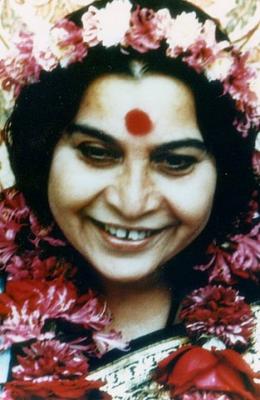
Mar 21, 1923-Feb 23, 2011
Shri Mataji Nirmala Devi was
Christian by birth, Hindu by
marriage, and Paraclete by duty.
The Paraclete represents direct,
intimate divine intervention,
supporting and teaching
believers and challenging the
world, as Jesus did.” (D. Stevick
Jesus and His Own, 2011, 290)
“But only thing that I always, I have been asking for are the seekers, where are they lost? Where are they? That's something still there, they are to be saved.
Shri Mataji Nirmala Devi was
Christian by birth, Hindu by
marriage, and Paraclete by duty.
The Paraclete represents direct,
intimate divine intervention,
supporting and teaching
believers and challenging the
world, as Jesus did.” (D. Stevick
Jesus and His Own, 2011, 290)
Because as I told you Christ is going to come back with eleven destructive powers and there's going to be no questioning, no realization. Just all the negative forces will be killed and those who enter into the kingdom of God will reside in the kingdom of God, will reside there, the residents, the citizens.
As He said, 'If you want money, I'll give you gold. But I look after those who hanker after Spirit.' You enter through the door and He eats with you, He shares with you. For a realized soul the highest human beings are the seekers. You may be any king or anything, what does it matter, there are so many roaming about.
But a seeker is the thing in the eyes of God as the highest human being, who has to become a super-human being"
The Paraclete/Divine Mother
Public program, The Spirit.” Houston, USA—7 October 1981

Caller: “Does She follow the Bible or..?”
Shri Mataji Nirmala Devi: “Yes I do. I know that. I know, I do. I know about it, that Christ has said, "I'll send you the Holy Ghost, I'll send you a Comforter and a Redeemer and a Counselor." That's what it is. And that is what, it is what I am.’ The Paraclete Shri Mataji, 1983-04-22, TV Interview, (Houston, USA: Live with Questions 25:15-25:33)
Shri Mataji Nirmala Devi: “Yes I do. I know that. I know, I do. I know about it, that Christ has said, "I'll send you the Holy Ghost, I'll send you a Comforter and a Redeemer and a Counselor." That's what it is. And that is what, it is what I am.’ The Paraclete Shri Mataji, 1983-04-22, TV Interview, (Houston, USA: Live with Questions 25:15-25:33)
“You see, we have a center within us, as I told you before, between the pineal and pituitary body on the Optic Chiasma. A subtle center is there which is the center of Christ.
Now, when you raise the Kundalini you find that at this spot the Kundalini stops if you have a little problem with Christ. For example, if you have been following Christ in a wrong way, in an unauthorized way without understanding Him or if you are not a forgiving person also, you might get this center blocked completely.
This is the door, which leads to the limbic area, which is the kingdom of God. Now, when this center is blocked and you see the Kundalini just pulsating there, then you have to take the name of Christ.
A Sahaja yogi has to take the name of Christ and request Christ that, 'Please be awakened on this center'. When he says only Christ's name, no other name, and that of Mary, then only this Kundalini rises through that center.
Christ's other name in Sanskrit language is Maha Vishnu. So you can also take His name as Maha Vishnu by which the Kundalini rises; you see it. And the person becomes thoughtlessly aware.
That's how you get your realization through Christ only, as far as this center is concerned; because this is the last center where you enter into the realm of limbic area, which is actually the kingdom of God.
But from there, you have to get realization through another center, which is the last one.”
THE MOTHER: Messiah-Paraclete-Ruh
Radio Interview, Sydney, Australia—31 March 1981
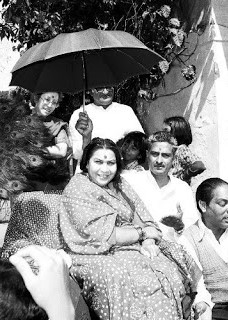
“Tell them all about it. Give them the big message that the Redeemer has come now. There’s no time to sit down. This is the One who is here. Better get up now! Don’t carry on with your old ideas and old things. [You] must know that this has happened.
And as I told you, the predictions can be used. You can use anything that you want to use out of Sahaja Yoga. You can tell them anything out of my speeches, whatever you want. You have every right to do what you like with my speeches. There is nothing to be afraid of, or worried about.”
Messiah-Paraclete-Ruh-Devi
Brighton, UK—May 15, 1982
And as I told you, the predictions can be used. You can use anything that you want to use out of Sahaja Yoga. You can tell them anything out of my speeches, whatever you want. You have every right to do what you like with my speeches. There is nothing to be afraid of, or worried about.”
Messiah-Paraclete-Ruh-Devi
Brighton, UK—May 15, 1982
“The laws that govern us are the divine laws. And to understand the divine laws, one has to enter into the Kingdom of God. It sounds very poetic, imaginary when people talk of Kingdom of God. Whether it exists within us or not is really a thing of experiencing. It is not that you can decide about it, only by discussing it, arguing it on the television; the person who argues for it or against it are both blind. And when they argue, you can see clearly that they cannot convince each other. One lives, he says, 'This is my faith,' another says, 'This is my reasoning.' The faith is blind and the reasoning is stunted because we reason out everything through this brain which is a limited.
As it is, one-tenth of the brain we can use mostly, they say. But even if we use the whole of the brain, still it is a limited thing. If we have to talk about something unlimited, then we have to go beyond reasoning, beyond blind faith and we have to experience it on our central nervous system. All our evolution that has taken place so far has been in the central nervous system recorded. Like you can see that a dog cannot feel any filth or dirt or any smell and he can pass through any dirty lane, but for a human being it is impossible to cross that. So many things we are aware, so many ways we are aware than animals. But still, why the human beings are in such a confusion? In these modern times, you find theres such a big confusion. All sorts of ideas are coming up about health, education, about politics, economics, God, realization; all sorts of markets are there. One gets so confused that one does not know how to believe into this or that.
What we have to understand that we have to believe into things which can be proved. Now the time has come that Divine itself has to be proved. That God Almighty has to be proved. That Christ as a son of God has to be proved, that His birth as immaculate conception has to be proved. Not by argument, not by reasoning, nor by blind faith but by actualization on your central nervous system. This is the challenge of our seeking today. We have been seeking before also. As amoeba we have been seeking, as animals we have been seeking, as human beings we have been seeking in power, in positions, in money, in possessions, in relationships. But what we have discovered is that even when everything is all right, we feel we are very far away from joy. The joy is lost. Weve come so far and we feel there is no joy. Where is that lost? Where is it that you have to find joy?
It is mentioned that you are to be born, not of the flesh, Nicodemus was told, but of the Holy Ghost, of the Holy Spirit. And where is this Holy Spirit within us? Is this three and a half coiled, in Sanskrit language called as Kundalini resides in all of us. Now what is Holy Ghost? It has to be The Mother. Because we have the Father, the wrathful Father, the watchful Father, the witness Father; then we have the Son. But how can you have a son to a father without The Mother? And the third one is the Holy Ghost; it has to be the primal Mothers power. And that is what is called as the Kundalini. And She is placed in this sacrum bone in all the human beings. Without any caste, creed, race, nationality, it is there. This germinating power of the primule of the seed has to be awakened and it has to pass through these six other centers to enter into this area which is shown there called as the limbic area, which is the Kingdom of God. And it has to pierce through this fontanel area to give you your real baptism, your Self-realization.
Supposing you say you believe that there is God. So what? And if you say you dont believe in God, so what? How will you prove to your children that there is God? Is there any way? Have you found out that way? Or are we going to continue with that faith: 'Oh, I believe in God, you know and God helped me a lot. I remember once I remember God and I got ten pounds on the way.' Such a ridiculous idea about God; it is very ridiculous. What God is going to do for us is to make us the citizen of His Kingdom, of His Kingdom. We enter into His Kingdom by the awakening of this Kundalini, and we become the spirit. We become the light. Now, all these are still words to you. So what happens, that when you become the light, truthfully what should happen to you is that you should actualize the experience. You should get it, not believe into what others are saying to you, but you must actualize the experience and see that you become collectively conscious. That you become collectively conscious is the question of becoming. Please, there is no time for deception anymore.
So let us start with that presumption that we are not guilty at all, that we have to enter into the Kingdom of God. So, what do we do? Effortlessly, it has to work out. But only thing we do is to nourish our different centers, which might have been augmented due to certain problems, may be physical, emotional or anything for which you need not feel guilty again, I would say. We have to just nourish these centers with our own hands and it will work out I am sure. May God bless you all!”
The Paraclete/Divine Mother
Public Program. Guild Hall, Derby, UK—1 August 1984
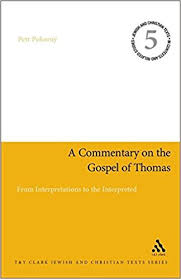
17 36,5b–9a
Jesus says:
“I will give you what no eye has seen,
and what no ear has heard,
and what no hand has touched,
and what has not occurred
to the human mind.”
We can understand these words as an attempt at an apophatic expression of astonishment (see the comment on log. 13) before the glory of the new age, as referred to in logion 13. What no hand has touched may be understood as a polemic against 1 John 1:1, where we read about the apostles touching Jesus with their hands. According to John 20:27, the risen Jesus told doubting Thomas that he could touch his wounds. It seems that Thomas did not do so, for he immediately reacted by confessing his faith (v. 28). Touching Jesus was considered witness to his real humanity (see John 1:14). In the Gospel of Thomas all this is a secondary phenomenon, given the belief that the living Jesus is present in spiritual form in the community of his disciples. It is therefore more probable that saying 17 is simply an attempt to express the otherness of the promised salvation—its difference from all human hopes.
A Commentary on the Gospel of Thomas
Petr Pokorny, T&T Clark; Reprint edition (December 22, 2011) p. 60
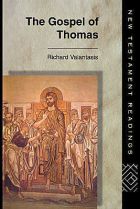
Saying 17 Jesus said, “I will give you what no eye has seen, what no ear has heard, what no hand has touched, what has not arisen in the human heart.”
This saying focuses on four negatives: the invisible ("What no eye has seen"), the inaudible ("What no ear has heard"), the intangible ("What no hand has touched"), and (to keep the parallel structure) the inhuman ("What has not arisen in the human heart"). These negatives characterize Jesus' gift to the hearer-a gift that cannot be apprehended from a common human experience nor understood from common human instruments of perception (sight, hearing, or touch). Jesus offers the hearer something that transcends human capacity. Patterson and Koester rightly link this saying to the collections of the sayings of Jesus (Synoptic Sayings Source Q 10.23-24) and to a letter of Paul (1 Corinthians 2.9) as a strategy of mystification of wisdom (Koester 1990b:55-62; Patterson 1993:83 and 233). In the present context, such mystification functions primarily in relationship to what Jesus provides: the emphasis in this saying points backward to the giver, Jesus, rather than to that which the hearer will receive. The four negative statements thus enhance the status of the giver while simultaneously providing the hearer and interpreter with a characterization of what mysterious realities the future holds.
This dynamic of enhancing the speaker while holding out uncommon and mysterious goods to the hearer points toward another purpose of the saying: the creation of desire. Offering the invisible, the inaudible, the intangible as well as the supra-human as future potential gifts for the hearer constructs them as objects of desire. These things beyond human capacity, which will come to the hearer only because of the superlative status of the speaker, become goals, lures, and attractions toward the encounter and the understanding of things beyond sight, hearing, touch, and human desire. The message, then, does not revolve primarily about the status of the speaker, or even about the mysterious nature of the gifts, but rather about the creation of desire. Desire, the longing for something unattained or the yearning for something absent, informs this saying. Jesus offers the seekers something indescribable and beyond perception; Jesus offers the seekers the fulfillment of their most profound desires. Such a saying provides a window into the attraction of the sayings in this Gospel: the potential for the fulfilling of desire, of being a new person, of living a spiritual life, draws seekers to interpret them. It happens not only in the mind or the heart, nor only in vision or hearing or touch; the desire for something unattainable remains constant and informs the process of transformation promulgated in this Gospel.
Richard Valantasis, The Gospel of Thomas
Routledge; 1 edition (June 27, 1997) pp. 84-5
The Kingdom of God within humans
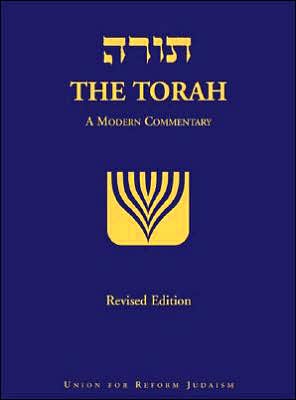
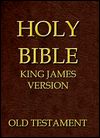
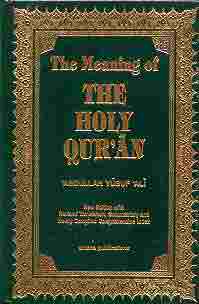

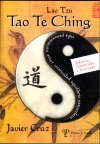
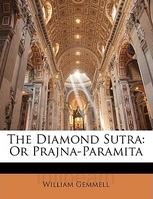
"Now, the principle of Mother is in every,
every scripture - has to be there!"Shri Mataji
“Apocalypse ... is a narrative form of a
revelation given to humans from a non-human
source. It reveals a truth about the past,
present or future, but most common use is in
terms of the future... A parousia is the coming
or arrival of an important figure of history...
Because the Kingdom of God is so closely
linked to eschatology in the Bible, there is a
series of terms that are used to describe the
way in which the Kingdom could possibly fit
into the end times and parousia.”
www.2pi.info/ (August 22, 2012)
Jesus said: "Whoever blasphemes against
the Father will be forgiven, and whoever
blasphemes against the Son will be forgiven,
but whoever blasphemes against the Holy
Spirit will not be forgiven either on earth or
in heaven.”The Gospel of Thomas Logion 44
“Although one of the Johannine Paraclete
passages, 16:7-11, draws on the forensic
background of the term parakletos, the other
passages suggest broader, more personal
senses, referring to one who consoles another,
befriends another, guides or teaches another,
or to one who publicizes the truth of things.
Translators have tried many equivalents for the
Evangelists term: Advocate (the choice of the
NRSV), Comforter, Convincer, Counselor,
Encourager, Friend, Helper, Teacher. Some
have simply transliterated: Paraclete. John
Reumann judges that"No one English word
catches all the nuances in the Paraclete
passages.” (Stevick 2011, 285)
“According to the Gospel of Thomas, then, the
kingdom of God symbolizes a state of
transformed consciousness. One enters that
kingdom when one attains self-knowledge.
The Gospel of Thomas teaches that when one
comes to know oneself, at the deepest level,
one simultaneously comes to know God as
the source of one's being.” (Pagels 1996, 71)
“For my mother [], but my true Mother gave
me [Eternal] Life.”Filling in the lacuna,
it probably said something like," For my
[human] mother gave me birth in flesh, but my
true Mother gave me the Life [of the Aeon].”
(Keizer 2010, 278)
“.. in 14.26, Jesus equates the Paraclete with
the Holy Spirit and mentions for the first time
that the Paraclete will teach, reminding his
followers of all that he has said to them. The
Spirit answers the concern of the disciples.”
(Stevick 2011, 288)
“But to communicate with the people, to
communicate with the Spirit, to understand the
Kundalini, the vibrations, and their different
decodings and all that the Holy Spirit had to
come, with Her mouth, and with Her voice,
and with Her intelligence.”The Paraclete Shri
Mataji, Sydney, Australia April 7, 1981
"How truthful are we about seeking?” July 79
The baptism of realizing The Mother/Paraclete
as the source of life eternal also begins here.
“Since the orthodox believed truth to be known only to the successors of the Apostles, one could learn of it only by accepting the Church's teachings in blind faith.every scripture - has to be there!"Shri Mataji
“Apocalypse ... is a narrative form of a
revelation given to humans from a non-human
source. It reveals a truth about the past,
present or future, but most common use is in
terms of the future... A parousia is the coming
or arrival of an important figure of history...
Because the Kingdom of God is so closely
linked to eschatology in the Bible, there is a
series of terms that are used to describe the
way in which the Kingdom could possibly fit
into the end times and parousia.”
www.2pi.info/ (August 22, 2012)
Jesus said: "Whoever blasphemes against
the Father will be forgiven, and whoever
blasphemes against the Son will be forgiven,
but whoever blasphemes against the Holy
Spirit will not be forgiven either on earth or
in heaven.”The Gospel of Thomas Logion 44
“Although one of the Johannine Paraclete
passages, 16:7-11, draws on the forensic
background of the term parakletos, the other
passages suggest broader, more personal
senses, referring to one who consoles another,
befriends another, guides or teaches another,
or to one who publicizes the truth of things.
Translators have tried many equivalents for the
Evangelists term: Advocate (the choice of the
NRSV), Comforter, Convincer, Counselor,
Encourager, Friend, Helper, Teacher. Some
have simply transliterated: Paraclete. John
Reumann judges that"No one English word
catches all the nuances in the Paraclete
passages.” (Stevick 2011, 285)
“According to the Gospel of Thomas, then, the
kingdom of God symbolizes a state of
transformed consciousness. One enters that
kingdom when one attains self-knowledge.
The Gospel of Thomas teaches that when one
comes to know oneself, at the deepest level,
one simultaneously comes to know God as
the source of one's being.” (Pagels 1996, 71)
“For my mother [], but my true Mother gave
me [Eternal] Life.”Filling in the lacuna,
it probably said something like," For my
[human] mother gave me birth in flesh, but my
true Mother gave me the Life [of the Aeon].”
(Keizer 2010, 278)
“.. in 14.26, Jesus equates the Paraclete with
the Holy Spirit and mentions for the first time
that the Paraclete will teach, reminding his
followers of all that he has said to them. The
Spirit answers the concern of the disciples.”
(Stevick 2011, 288)
“But to communicate with the people, to
communicate with the Spirit, to understand the
Kundalini, the vibrations, and their different
decodings and all that the Holy Spirit had to
come, with Her mouth, and with Her voice,
and with Her intelligence.”The Paraclete Shri
Mataji, Sydney, Australia April 7, 1981
"How truthful are we about seeking?” July 79
The baptism of realizing The Mother/Paraclete
as the source of life eternal also begins here.
Others, however, believing that Christ's spirit and presence could be experienced by anyone at any time, considered truth to be dynamic and ever-increasing. Some Gnostics believed that truth and Gnosis or"knowledge"Was found, not by looking to the Church, but by looking within oneself. Self-knowledge would lead to knowing God. A Gnostic teacher named Monoimus wrote:
Look for (God) by taking yourself as the starting point... Learn the sources of sorrow, joy, love, hate... If you carefully investigate these matters you will find him in yourself.39
The first century Simon Magus taught that within each human being dwells"The Boundless power, which... is the root of the universe.”40 The path to enlightenment involved not simply accepting the words of the Church on faith, but an active personal search for understanding. A Gnostic text reads.”..the rational soul who wearied herself in seeking she learned about God.”41
These Christians believed self-exploration to be imperative to one's spiritual path.
In the Gnostic Gospel According to Thomas, Jesus says:
If you bring forth what is within you, what you bring forth will save you. If you do not bring forth what is within you, what you do not bring forth will destroy you.42
They believed that searching could dispel the ignorance that produced a nightmarish existence in which one is caught in"many illusions"And experiences"terror and confusion and instability and doubt and division.”43 The Gospel of Truth reads:
ignorance... brought about anguish and terror. And the anguish grew solid like a fog, so that no one was able to see.44
Searching within oneself could bring the knowledge and enlightenment to dispel such ignorance. They believed that Jesus had encouraged self-exploration. Jesus said," Seek, and ye shall find; knock, and it shall be opened unto you"And"The Kingdom of God is within you.”45
Helen Ellerbe (1995) 11-12
39. Pagels, The Gnostic Gospels, xix-xx.
40. Hippolytus Philosophumena 6.9, Volume II, Translated by F. Legge (London: Society For Promoting Christian Knowledge, 1921) 5.
41.”Authoritative Teaching"VI, 3 34.32-35.2 from The Nag Hammadi Library, 283.
42. Pagels, The Gnostic Gospels, 126.
43.”The Gospel of Truth"29.2-6 from The Nag Hammadi Library, 43
44.”The Gospel of Truth"17.10-15 from The Nag Hammadi Library, 40
45. Matthew 7:7 and Luke 17:21.
Since November 1993 the transcendental experiences of children's souls, each meeting the Holy Spirit hundreds of times in the Kingdom of God within* over the years, have been recorded. They have identified Shri Mataji Nirmala Devi to be Her incarnation, sent to deliver the message and means to participate in the promised Resurrection and evolution into the eternal spirit.
Shri Mataji, as the pledged Paraclete, has openly and repeatedly proclaimed the world over the Good News (Al Naba) of the Kingdom of the Spirit since the 1970's. (She passed away peacefully February 23, 2011 in Genoa, Italy at the age of 87.)
Only in this age of mass media and literacy is its universality possible, and comprehensible. The common eschatology of the deeply-divisive faiths of Judaism, Christianity and Islam have been harmoniously declared, explained in detail, concluded, and set in motion by the Spirit-Paraclete.
As Her incarnation, Shri Mataji calls upon humanity to cross-examine evidence of the Holy Spirit's promise and pledge of evolution into life eternal. The Spirit-Paraclete reveals the apocalypse and eschatology that completes and brings closure to Jesus' unfinished teachings:
“Ehrman's is a historical-Jesus book ... He believes that apocalypticism is the true core of Jesus' message, and that comfortable middle-class complacency among scholars, clergy, and laypeople has forged a counterfeit, domesticated, 'ethical' Jesus to cover up their befuddlement about his misprediction of the apocalypse.”- Michael Joseph Gross (Hardcover jacket of Ehrman's Jesus: Apocalyptic Prophet of the New Millennium)
“Jesus has far too mordant an understanding of ruthlessness and corruption ... that keeps the world sunk in degradation. Not only does Jesus know this, but he faces its necessity and lives it out in the extremity of his own life; he is fully aware that his knowledge of the laws of the birth of the Kingdom threatened all previous human accommodations to the way of the world; after his very first public sermon, the Gospel of Matthew tells us, occasional attempts on his life were made. Unlike many of the gurus and so-called teachers of our time, whose vague transcendental waffling further drugs an already comatose culture and leaves every aspect of the status quo intact, Jesus' vision of the new way was rooted not only in visionary ecstasy but in an utterly illusionless and ruthless analysis of power in all its aspects. This is what made him and makes him dangerous, perpetually scandalous, and what makes the Gospel of Thomas a fiery challenge, not only to less incendiary versions of his own message, but to all philosophers who do not propose a complex mystical revolution on every level.
... we see the agency of this transformation in The Motherhood of God, the Divine Feminine. This is quite clear from the image of infants sucking at the breast, through which Jesus is trying to make us aware of how important is the embodied Godhead, The Mother aspect of God, and how important it is to the kind of transformation he wants. Only those who have awoken to the kingdom within and without as the embodied Godhead will be able to view life and Creation and all the workings of the universe with the kind of abandon and trust that will allow them to be fed directly by God, with all the powers of vision and action they need. Without a restoration to the Christian mysticism of Jesus' own full celebration of the Divine Feminine, the 'Kingdom-consciousness' cannot and will not be born.”
Stevan L. Davies, The Gospel of Thomas
Shambhala Library, December 2004, p. xx-xxii
*Kingdom of God within
"Kingdom of God, also called Kingdom Of Heaven, in Christianity, the spiritual realm over which God reigns as king, or the fulfillment on Earth of God's will. The phrase occurs frequently in the New Testament, primarily used by Jesus Christ in the first three Gospels. It is generally considered to be the central theme of Jesus' teaching, but widely differing views have been held about Jesus' teaching on the Kingdom of God and its relation to the developed view of the church.
Though the phrase itself rarely occurs in pre-Christian Jewish literature, the idea of God as king was fundamental to Judaism, and Jewish ideas on the subject undoubtedly underlie, and to some extent determine, the New Testament usage. Behind the Greek word for kingdom (basileia) lies the Aramaic term malkut, which Jesus may have used. Malkut refers primarily not to a geographical area or realm nor to the people inhabiting the realm but, rather, to the activity of the king himself, his exercise of sovereign power. The idea might better be conveyed in English by an expression such as kingship, rule, or sovereignty.
To most Jews of Jesus' time the world seemed so completely alienated from God that nothing would deal with the situation short of direct divine intervention on a cosmic scale. The details were variously conceived, but it was widely expected that God would send a supernatural, or supernaturally endowed, intermediary, whose functions would include a judgment to decide who was worthy to 'inherit the Kingdom,' an expression which emphasizes that the Kingdom was thought of as a divine gift, not a human achievement.
According to the first three Gospels, most of Jesus' miraculous actions are to be understood as prophetic symbols of the coming of the Kingdom, and his teaching was concerned with the right response to the crisis of its coming. The nationalistic tone of much of the Jewish expectation is absent from the teaching of Jesus.
Scholarly opinion is divided on the question as to whether Jesus taught that the Kingdom had actually arrived during his lifetime. Possibly, he recognized in his ministry the signs of its imminence, but he nevertheless looked to the future for its arrival "with power." He may well have regarded his own death as the providential condition of its full establishment. The Kingdom of God, however, would be fully realized only after the end of the world and the accompanying Last Judgment. The Johannine writings in the New Testament played a large part in the transition to this traditional Christian understanding of the Kingdom of God.” (Encyclopedia Britannica Inc., Web. June 5, 2012)
“At the same time, the knowledge Jesus communicates in the gnostic gospels and related texts is a knowledge both of what is outside and of what is inside...
In the Gospel of Thomas Jesus says that the kingdom is inside and outside (3:3), and the inner may be like the outer and the outer like the inner (22:4)...
Another Valentinian gospel, the Gospel of Philip, gives a meditation on the outer and the inner. Based on an utterance of Jesus very much like Gospel of Thomas 22:4, this meditation maintains it is actually more fitting to focus attention upon what is within, what is innermost. The world of the pleroma, the fullness of God, thought by many to be the divine realm above, truly is within. In the words of the Gospel of Philip, 'What is innermost is the fullness, and there is nothing further within' (68). If the fullness is within, so, in the Gospel of Thomas, is the kingdom within, or spread out upon the earth, unseen by people (3:3; 113:4), and so also, in the Gospel of Mary, is the child of humankind (or son of man) within. As Jesus says to the disciples in the Gospel of Mary, 'Follow that. Those who seek will find it'(8).” (Meyer 2009, xxiii-xxiv)
“But those who have got Realization (baptism/kundalini awakening) will enter into the Kingdom of God. You have to enter into the Kingdom of God here, as I say, in the Seventh Chakra.”
The Divine Mother/Paraclete
The New Age Has Started, Houston, USA October 6, 1981
“Coiled like a snake at the base of the spine, kundalini is the spiritual force that lies dormant in every human being. Once awakened, often through meditation and yoga practices, it rises up the spine and finds expression in the form of spiritual knowledge, mystical vision, psychic powers, and ultimately, enlightenment.” (Gopi Krishna 1997, back cover)
“The New Testament announces the fulfillment of the eschatological hope of the spirit proclaimed by the prophets. Two elements are emphasized: the coming of the one who is the permanent bearer of the spirit and the outpouring of the spirit on 'all flesh'; and both are linked.” (Metzger, Coogan 1993, 203)
“'Paraclete' is the title that most clearly expresses the personal character of the Holy Spirit. Using that title, the author of the hymn takes us a decisive step forward in contemplating the Holy Spirit. If by the term 'Creator' he affirmed that the Spirit was by nature divine, now by the term 'Paraclete' he affirms that the Spirit is also a divine person. The other titles and symbols of the Spirit water, fire, love, and the very names Spirit might of themselves at the very most convince us that there is 'something divine' about the Holy Spirit. Paraclete, however, is in itself a personal title: it can be attributed only to a person because it implies both intellect and will.” (Cantalamessa 2003, 69)
“As noted earlier, some of the classical literature of Kundalini describes her as the great goddess. In he Laksmi Tantra, and ancient Pancaratra text (the oldest surviving Visnuite sect in India) there is a dialogue between Laksmi (another name for the goddess Kundalini) and Sakra, a devotee. Sakra did divine penance ... The goddess then appeared and he asked to know the nature of truth. She told him she was Kundalini and all other goddesses as well, and advocated her worship as the Great-Mother Goddess.” (Greenwell 2002, 19)
![]()
Shri Mataji 1983 TV Interview (Houston, USA: Live with questions)
Related Articles:
Gospel of Thomas
The Gospel of Thomas Prologue
Logion 1
Logion 2
Logion 3
Logion 4
Logion 5
Logion 6
Logion 7
Logion 8
Logion 9
Logion 10
Logion 11
Logion 12
Logion 13
Logion 14
Logion 15
Logion 16
Logion 17
Logion 18
Logion 19
Logion 20
Logion 21
Logion 22
Logion ...
THE APOCALYPSE OF THE SPIRIT-PARACLETE
The fulfillment of the promised divine eschatological instruction
“The original meaning of the word ‘apocalypse’, derived from the Greek apokalypsis, is in fact not the cataclysmic end of the world, but an ‘unveiling’, or ‘revelation’, a means whereby one gains insight into the present.” (Kovacs, 2013, 2) An apocalypse (Greek: apokalypsis meaning “an uncovering”) is in religious contexts knowledge or revelation, a disclosure of something hidden, “a vision of heavenly secrets that can make sense of earthly realities.” (Ehrman 2014, 59)
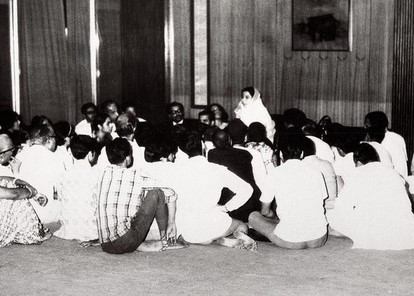
Shri Mataji Nirmala Devi (1923-2011) was Christian by birth, Hindu by marriage, and Paraclete by duty.
“The Paraclete will come (15:26; 16:7, 8, 13) as Jesus has come into the world (5:43; 16:28; 18:37)... The Paraclete will take the things of Christ (the things that are mine, ek tou emou) and declare them (16:14-15). Bishop Fison describes the humility of the Spirit, 'The true Holy Spirit of God does not advertise Herself: She effaces Herself and advertises Jesus.' ...
It is by the outgoing activity of the Spirit that the divine life communicates itself in and to the creation. The Spirit is God-in-relations. The Paraclete is the divine self-expression which will be and abide with you, and be in you (14:16-17). The Spirit's work is described in terms of utterance: teach you, didasko (14:26), remind you, hypomimnesko (14:26), testify, martyro (15:26), prove wrong, elencho (16:8), guide into truth, hodego (16:13), speak, laleo (16:13, twice), declare, anangello (16:13, 14, 15). The johannine terms describe verbal actions which intend a response in others who will receive (lambano), see (theoreo), or know (ginosko) the Spirit. Such speech-terms link the Spirit with the divine Word. The Spirit's initiatives imply God's personal engagement with humanity. The Spirit comes to be with others; the teaching Spirit implies a community of learners; forgetful persons need a prompter to remind them; one testifies expecting heed to be paid; one speaks and declares in order to be heard. The articulate Spirit is the correlative of the listening, Spirit-informed community.
The final Paraclete passage closes with a threefold repetition of the verb she will declare (anangello), 16:13-15. The Spirit will declare the things that are to come (v.13), and she will declare what is Christ's (vv. 14, 15). The things of Christ are a message that must be heralded...
The intention of the Spirit of truth is the restoration of an alienated, deceived humanity... The teaching role of the Paraclete tends to be remembered as a major emphasis of the Farewell Discourses, yet only 14:26 says She will teach you all things. (Teaching is, however, implied when 16:13-15 says that the Spirit will guide you into all truth, and will speak and declare.) Franz Mussner remarks that the word used in 14:26, didaskein, "means literally 'teach, instruct,' but in John it nearly always means to reveal.” (Stevick 2011, 292-7)
“The Paraclete will come (15:26; 16:7, 8, 13) as Jesus has come into the world (5:43; 16:28; 18:37)... The Paraclete will take the things of Christ (the things that are mine, ek tou emou) and declare them (16:14-15). Bishop Fison describes the humility of the Spirit, 'The true Holy Spirit of God does not advertise Herself: She effaces Herself and advertises Jesus.' ...
It is by the outgoing activity of the Spirit that the divine life communicates itself in and to the creation. The Spirit is God-in-relations. The Paraclete is the divine self-expression which will be and abide with you, and be in you (14:16-17). The Spirit's work is described in terms of utterance: teach you, didasko (14:26), remind you, hypomimnesko (14:26), testify, martyro (15:26), prove wrong, elencho (16:8), guide into truth, hodego (16:13), speak, laleo (16:13, twice), declare, anangello (16:13, 14, 15). The johannine terms describe verbal actions which intend a response in others who will receive (lambano), see (theoreo), or know (ginosko) the Spirit. Such speech-terms link the Spirit with the divine Word. The Spirit's initiatives imply God's personal engagement with humanity. The Spirit comes to be with others; the teaching Spirit implies a community of learners; forgetful persons need a prompter to remind them; one testifies expecting heed to be paid; one speaks and declares in order to be heard. The articulate Spirit is the correlative of the listening, Spirit-informed community.
The final Paraclete passage closes with a threefold repetition of the verb she will declare (anangello), 16:13-15. The Spirit will declare the things that are to come (v.13), and she will declare what is Christ's (vv. 14, 15). The things of Christ are a message that must be heralded...
The intention of the Spirit of truth is the restoration of an alienated, deceived humanity... The teaching role of the Paraclete tends to be remembered as a major emphasis of the Farewell Discourses, yet only 14:26 says She will teach you all things. (Teaching is, however, implied when 16:13-15 says that the Spirit will guide you into all truth, and will speak and declare.) Franz Mussner remarks that the word used in 14:26, didaskein, "means literally 'teach, instruct,' but in John it nearly always means to reveal.” (Stevick 2011, 292-7)
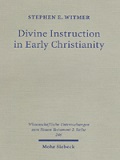
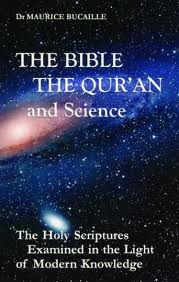
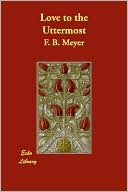
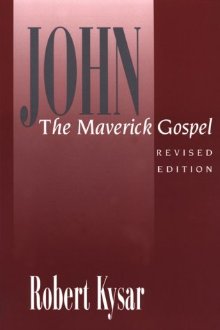
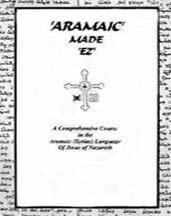
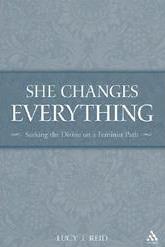
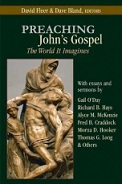
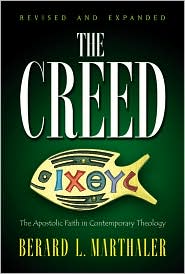
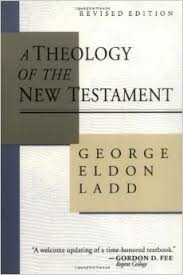
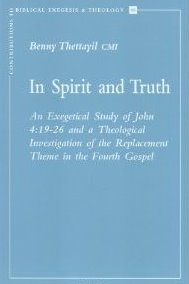

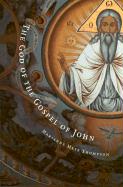
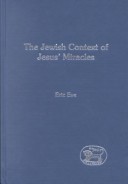
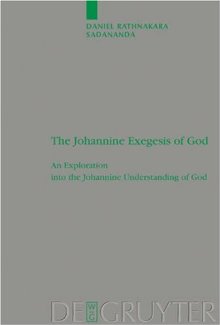
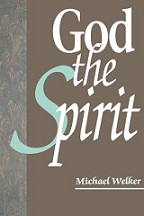
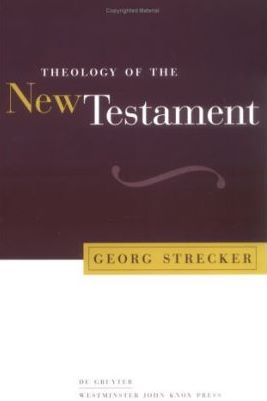
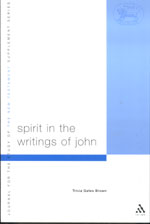
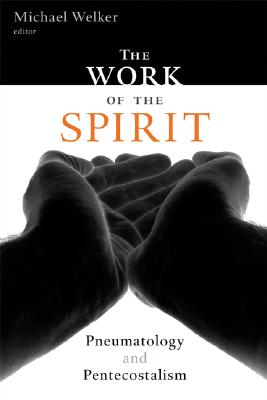
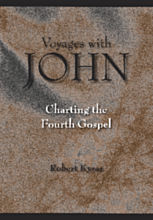
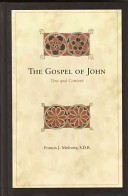
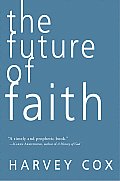
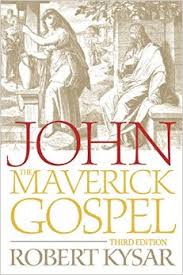
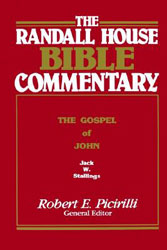

“The teaching of the Paraclete, as the continuation of Jesus' teaching, must also be understood as the fulfillment of the promise of eschatological divine instruction.”
Stephen E. Witmer, Divine instruction in Early Christianity
“Jesus therefore predicts that God will later send a human being to Earth to take up the role defined by John .i.e. to be a prophet who hears God's words and repeats his message to man.”
M. Bucaille, The Bible, the Qur'n, and Science
“And when Jesus foreannounced another Comforter, He must have intended a Person as distinct and helpful as He had been.”
F. B. Meyer, Love to the Utmost
“The Paraclete has a twofold function: to communicate Christ to believers and, to put the world on trial.”
Robert Kysar, John The Meverick Gospel
“But She—the Spirit, the Paraclete...—will teach you everything.”
Danny Mahar, Aramaic Made EZ)
“Grammatical nonsense but evidence of the theological desire to defeminize the Divine.”
Lucy Reid, She Changes Everything
“The functions of the Paraclete spelled out in verses 13-15... are all acts of open and bold speaking in the highest degree.”
David Fleer, Preaching John's Gospel
“The reaction of the world to the Paraclete will be much the same as the world's reaction was to Jesus.”
Berard L. Marthaler, The Creed: The Apostolic Faith in Contemporary Theology
Bultmann calls the “coming of the Redeemer an 'eschatological event,' 'the turning-point of the ages.”
G. Ladd, A Theology of the New Testament
“The Paraclete equated with the Holy Spirit, is the only mediator of the word of the exalted Christ.”
Benny Thettayil, In Spirit and Truth
“The divine Paraclete, and no lessor agency, must show the world how wrong it was about him who was in the right.”
Daniel B. Stevick , Jesus and His Own: A Commentary on John 13-17
Stephen Smalley asserts that “The Spirit-Paraclete ... in John's Gospel is understood as personal, indeed, as a person.”
Marianne Thompson, The God of the Gospel of John
“The Messiah will come and the great age of salvation will dawn (for the pious).”
Eric Eve, The Jewish context of Jesus' Miracles
“The remembrance is to relive and re-enact the Christ event, to bring about new eschatological decision in time and space.”
Daniel Rathnakara Sadananda, The Johannine Exegesis of God
“The Spirit acts in such an international situation as the revealer of 'judgment' on the powers that rule the world.”
Michael Welker, God the Spirit
The Paraclete's “Appearance means that sin, righteousness, and judgment will be revealed.”
Georg Strecker, Theology of the New Testament
“While the Spirit-Paraclete is the true broker, the brokers they rely on are impostors.”
T. G. Brown, Spirit in the writings of John
“The pneumatological activity ... of the Paraclete ... may most helpfully be considered in terms of the salvific working of the hidden Spirit.”
Michael Welker, The work of the Spirit
“The pneuma is the peculiar power by which the word becomes the words of eternal life.”
Robert Kysar, Voyages with John
“The gift of peace, therefore, is intimately associated with the gift of the Spirit-Paraclete.”
Francis J. Moloney, The Gospel of John
“This utopian hope, even when modestly expressed, links Jesus and the prophets to a much wider history of human longing.”
Harvey Cox, The Future of Faith
“Because of the presence of the Paraclete in the life of the believer, the blessings of the end-times—the eschaton—are already present.”
Robert Kysar, John
“They are going, by the Holy Spirit's power, to be part of the greatest miracle of all, bringing men to salvation.”
R. Picirilli, The Randall House Bible Commentary
“The Kingdom of God stands as a comprehensive term for all that the messianic salvation included... is something to be sought here and now (Mt. 6:33) and to be received as children receive a gift (Mk. 10:15 = Lk. 18:16-17).”
G. Ladd, A Theology of the New Testament
Stephen E. Witmer, Divine instruction in Early Christianity
“Jesus therefore predicts that God will later send a human being to Earth to take up the role defined by John .i.e. to be a prophet who hears God's words and repeats his message to man.”
M. Bucaille, The Bible, the Qur'n, and Science
“And when Jesus foreannounced another Comforter, He must have intended a Person as distinct and helpful as He had been.”
F. B. Meyer, Love to the Utmost
“The Paraclete has a twofold function: to communicate Christ to believers and, to put the world on trial.”
Robert Kysar, John The Meverick Gospel
“But She—the Spirit, the Paraclete...—will teach you everything.”
Danny Mahar, Aramaic Made EZ)
“Grammatical nonsense but evidence of the theological desire to defeminize the Divine.”
Lucy Reid, She Changes Everything
“The functions of the Paraclete spelled out in verses 13-15... are all acts of open and bold speaking in the highest degree.”
David Fleer, Preaching John's Gospel
“The reaction of the world to the Paraclete will be much the same as the world's reaction was to Jesus.”
Berard L. Marthaler, The Creed: The Apostolic Faith in Contemporary Theology
Bultmann calls the “coming of the Redeemer an 'eschatological event,' 'the turning-point of the ages.”
G. Ladd, A Theology of the New Testament
“The Paraclete equated with the Holy Spirit, is the only mediator of the word of the exalted Christ.”
Benny Thettayil, In Spirit and Truth
“The divine Paraclete, and no lessor agency, must show the world how wrong it was about him who was in the right.”
Daniel B. Stevick , Jesus and His Own: A Commentary on John 13-17
Stephen Smalley asserts that “The Spirit-Paraclete ... in John's Gospel is understood as personal, indeed, as a person.”
Marianne Thompson, The God of the Gospel of John
“The Messiah will come and the great age of salvation will dawn (for the pious).”
Eric Eve, The Jewish context of Jesus' Miracles
“The remembrance is to relive and re-enact the Christ event, to bring about new eschatological decision in time and space.”
Daniel Rathnakara Sadananda, The Johannine Exegesis of God
“The Spirit acts in such an international situation as the revealer of 'judgment' on the powers that rule the world.”
Michael Welker, God the Spirit
The Paraclete's “Appearance means that sin, righteousness, and judgment will be revealed.”
Georg Strecker, Theology of the New Testament
“While the Spirit-Paraclete is the true broker, the brokers they rely on are impostors.”
T. G. Brown, Spirit in the writings of John
“The pneumatological activity ... of the Paraclete ... may most helpfully be considered in terms of the salvific working of the hidden Spirit.”
Michael Welker, The work of the Spirit
“The pneuma is the peculiar power by which the word becomes the words of eternal life.”
Robert Kysar, Voyages with John
“The gift of peace, therefore, is intimately associated with the gift of the Spirit-Paraclete.”
Francis J. Moloney, The Gospel of John
“This utopian hope, even when modestly expressed, links Jesus and the prophets to a much wider history of human longing.”
Harvey Cox, The Future of Faith
“Because of the presence of the Paraclete in the life of the believer, the blessings of the end-times—the eschaton—are already present.”
Robert Kysar, John
“They are going, by the Holy Spirit's power, to be part of the greatest miracle of all, bringing men to salvation.”
R. Picirilli, The Randall House Bible Commentary
“The Kingdom of God stands as a comprehensive term for all that the messianic salvation included... is something to be sought here and now (Mt. 6:33) and to be received as children receive a gift (Mk. 10:15 = Lk. 18:16-17).”
G. Ladd, A Theology of the New Testament
“But today is the day I declare that I am the one who has to save the humanity. I declare I am the one who is Adishakti, who is the Mother of all the Mothers, who is the Primordial Mother, the Shakti, the desire of God, who has incarnated on this Earth to give its meaning to itself; to this creation, to human beings and I am sure through My Love and patience and My powers I am going to achieve it.
I was the one who was born again and again. But now in my complete form and complete powers I have come on this Earth not only for salvation of human beings, not only for their emancipation, but for granting them the Kingdom of Heaven, the joy, the bliss that your Father wants to bestow upon you.”
THE MOTHER: Messiah-Paraclete-Ruh
London, UK—December 2, 1979
“I am the one about which Christ has talked... I am the Holy Spirit who has incarnated on this Earth for your realization.”
THE MOTHER: Messiah-Paraclete-Ruh
New York, USA—September 30, 1981
“Tell all the nations and tell all the people all over the Great Message that the Time of Resurrection is here. Now, at this time, and that you are capable of doing it.”
THE MOTHER: Messiah-Paraclete-Ruh
Cowley Manor Seminar, UK—July 31, 1982
Guest: “Hello Mother.”
Shri Mataji: “Yes.”
Guest: “I wanted to know, is the Cool Breeze (Pneuma) that you have spoken about, you feel on the hands the Cool Wind of the Holy Spirit, as spoken about in the Bible?”
Shri Mataji: “Yes. Yes, yes, same thing, same thing. You have done the good job now, I must say.”
Interviewer: “Is it the Holy Spirit?”
Shri Mataji: “Yes, of course, is the Holy Spirit.”
Guest: “Aha... I am feeling it now on my hand through the [not clear]”
Shri Mataji: “It’s good.”
Interviewer: “Did you want to say anything more than that?”
Guest: “No, I just... That’s all I wanted to know because I...”
Shri Mataji: “Because you are thoughtless now. Enjoy yourself.”
Guest: “Thank you.”
THE MOTHER: Messiah-Paraclete-Ruh-Devi
Talkback Radio 2UE, Sydney, Australia—March 31, 1981
(The guest experienced the Cool Breeze [Pneuma/Prana/Chi] of the Spirit through the baptism [second birth by Spirit/Kundalini awakening]” given by the Comforter Shri Mataji over the radio. )
Second Guest: “I just want to ask Mother about a quotation from the Bible.”
Interviewer: “Yes, what’s that?”
Guest: “It says, ‘But the comfort of the Holy Spirit that the Father will send in My name would teach you all things.’ I would like to ask Her about that.”
Interviewer: “Could you just repeat the quotation again?”
Guest: “But the Comforter, the Holy Spirit, whom the Father will send in My name, will teach you all things.”
Interviewer: “And that’s from where?”
Guest: “John chapter 14, verse 26.”
Shri Mataji: “I think you should take your realization and then you will know the answer to it. Because, logically if it points out to one person, then you have to reach the conclusion, isn’t it? That’s a logical way of looking at things. But I am not going to say anything or claim anything. It is better you people find out yourself.”
Interviewer: “Does that answer your question?”
Guest: “Is the, is the Comforter on the Earth at the present time? Has the Comforter incarnated? Mataji should be able to tell us this because She said that through these vibrations on Her hands, She ...”
Shri Mataji: “Yes, She is very much here and She’s talking to you now. Can you believe that?”
Guest: “Well, I feel something cool [Pneuma/Prana/Chi] on my hand. Is that some indication of the ...?”
Shri Mataji: “Yes, very much so. So that’s the proof of the thing. You’ve already started feeling it in your hands.”
Guest: “Can I?”
Shri Mataji: “Ask the question, ‘Mother, are you the Comforter?’”
Guest: “Mother, are you the Comforter?”
Shri Mataji: “Ask it thrice.”
Guest: “Mother, are you the Comforter?”
Shri Mataji: “Again.”
Guest: “Mother, are you the Comforter?”
Shri Mataji: “Now, what do you get?”
Guest: “Oh, I feel this kind of cool tingling [Pneuma/Prana/Chi] passing all through my body.”
Shri Mataji: “That’s the answer now.”
THE MOTHER: Messiah-Paraclete-Ruh-Devi
Talkback Radio 2UE, Sydney, Australia—March 31, 1981
(Another guest also experienced the Cool Breeze [Pneuma/Prana/Chi] of the Spirit through the baptism [second birth by Spirit/Kundalini awakening]” given by the Comforter Shri Mataji over the radio. )
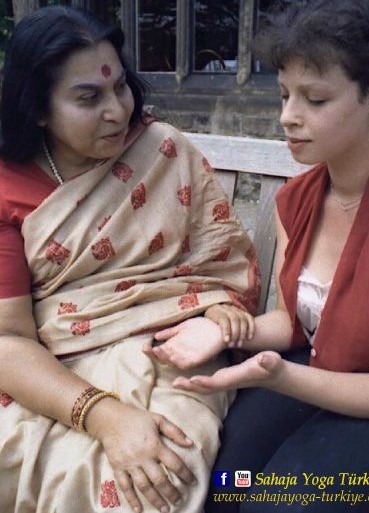
Shri Mataji Nirmala Devi (1923-2011): Christian by birth, Hindu by marriage and Paraclete by duty.
“The Paraclete and the disciples (vv. 25-26): The theme of departure (cf. vv. 1-6; vv. 18-24) returns. There are two "times" in the experience of the disciples: the now as Jesus speaks to them (v. 25) and the future time when the Paraclete, the Holy Spirit, sent by the Father in the name of Jesus, will be with them (v. 26). The Paraclete will replace Jesus' physical presence, teaching them all things and recalling for them everything he has said (v. 26). As Jesus is the Sent One of the Father (cf. 4:34; 5:23; 24, 30, 37; 6:38-40; 7:16; 8:16, 18, 26; 12:44-49), so is the Paraclete sent by the Father. The mission and purpose of the former Paraclete, Jesus (cf. 14:13-14), who speaks and teaches "his own" will continue into the mission and purpose of the "other Paraclete" (cf. v. 16) who teaches and brings back the memory of all that Jesus has said. The time of Jesus is intimately linked with the time after Jesus, and the accepted meaning of a departure has been undermined. The inability of the disciples to understand the words and deeds of Jesus will be overcome as they "remember" what he had said (cf. 2:22) and what had been written of him and done to him (cf. 12:16). The "remembering" will be the fruit of the presence of the Paraclete with the disciples in the in-between-time. In v. 16 Jesus focused on the inability of the world to know the Paraclete, but in v. 26 the gift of the Paraclete to "his own" is developed. As Jesus was with the disciples (v. 25), so will the Paraclete be with the disciples in the midst of hostility and rejection (v. 16). As the story has insisted that Jesus' teaching has revealed God to his disciples, so will the Paraclete recall and continue Jesus' revelation of God to the disciples (v. 26).” (Harrington 1998, 412)
“The Paraclete and the disciples (vv. 25-26): The theme of departure (cf. vv. 1-6; vv. 18-24) returns. There are two "times" in the experience of the disciples: the now as Jesus speaks to them (v. 25) and the future time when the Paraclete, the Holy Spirit, sent by the Father in the name of Jesus, will be with them (v. 26). The Paraclete will replace Jesus' physical presence, teaching them all things and recalling for them everything he has said (v. 26). As Jesus is the Sent One of the Father (cf. 4:34; 5:23; 24, 30, 37; 6:38-40; 7:16; 8:16, 18, 26; 12:44-49), so is the Paraclete sent by the Father. The mission and purpose of the former Paraclete, Jesus (cf. 14:13-14), who speaks and teaches "his own" will continue into the mission and purpose of the "other Paraclete" (cf. v. 16) who teaches and brings back the memory of all that Jesus has said. The time of Jesus is intimately linked with the time after Jesus, and the accepted meaning of a departure has been undermined. The inability of the disciples to understand the words and deeds of Jesus will be overcome as they "remember" what he had said (cf. 2:22) and what had been written of him and done to him (cf. 12:16). The "remembering" will be the fruit of the presence of the Paraclete with the disciples in the in-between-time. In v. 16 Jesus focused on the inability of the world to know the Paraclete, but in v. 26 the gift of the Paraclete to "his own" is developed. As Jesus was with the disciples (v. 25), so will the Paraclete be with the disciples in the midst of hostility and rejection (v. 16). As the story has insisted that Jesus' teaching has revealed God to his disciples, so will the Paraclete recall and continue Jesus' revelation of God to the disciples (v. 26).” (Harrington 1998, 412)
“This is the transformation that has worked, of which Christ has talked, Mohammed Sahib has talked, everybody has talked about this particular time when people will get transformed.”
THE MOTHER: Messiah-Paraclete-Ruh
Chistmas Puja, Ganapatipule, India—25 December 1997
“The Resurrection of Christ has to now be collective Resurrection. This is what is Mahayoga. Has to be the collective Resurrection.”
THE MOTHER: Messiah-Paraclete-Ruh
Easter Puja, London, UK—11 April 1982
“Today, Sahaja Yaga has reached the state of Mahayoga, which is en-masse evolution manifested through it. It is this day’s Yuga Dharma. It is the way the Last Judgment is taking place. Announce it to all the seekers of truth, to all the nations of the world, so that nobody misses the blessings of the divine to achieve their meaning, their absolute, their Spirit.”
THE MOTHER: Messiah-Paraclete-Ruh
MAHA AVATAR, ISSUE 1, JUL-SEP 1980
“The main thing that one has to understand is that the time has come for you to get all that is promised in the scriptures, not only in the Bible but all all the scriptures of the world. The time has come today that you have to become a Christian, a Brahmin, a Pir, through your Kundalini awakening only. There is no other way. And that your Last Judgment is also now.”
THE MOTHER: Messiah-Paraclete-Ruh
“You see, the Holy Ghost is the Mother. When they say about the Holy Ghost, She is the Mother... Now, the principle of Mother is in every, every scripture — has to be there. Now, the Mother's character is that She is the one who is the Womb, She is the one who is the Mother Earth, and She is the one who nourishes you. She nourishes us. You know that. And this Feminine thing in every human being resides as this Kundalini.”
THE MOTHER: Messiah-Paraclete-Ruh-Devi
Radio Interview, Santa Cruz, USA—1 October 1983
“But there is a Primordial Mother which was accepted by all the religions; even the Jews had it... In India, this is called as Adi Shakti. In every religion they had this Mother who was the Primordial Mother.”
THE MOTHER: Messiah-Paraclete-Ruh-Devi
TV Interview, Los Angeles, USA—11 October 1993

The Paraclete Shri Mataji (1923-2011)
Total number of Recorded Talks 3058, Public Programs 1178, Pujas 651 and Other (private conversations) 1249
“What are they awaiting but for the Hour to come upon them suddenly? Its Signs have already come. What good will their Reminder be to them when it does arrive?” (Qur'n, 47:18) “As the above verse indicates, God has revealed some of Doomsday's signs in the Qur'n. In Surat az-Zukhruf 43:61, God informs us that 'He [Jesus] is a Sign of the Hour. Have no doubt about it...' Thus we can say, based particularly on Islamic sources but also on the Old Testament and the New Testament, that we are living in the End Times.” Harun Yahya
Good News (An Naba) of Resurrection (Al-Qiyamah): Videos 3474, Audios 1945, Transcripts 3262 and Events 2413
“Concerning what are they disputing?
Concerning the Great News. [5889]
About which they cannot agree.
Verily, they shall soon (come to) know!
Verily, verily they shall soon (come to) know!”
surah 78:1-5 An Naba (The Great News)
5889. Great News: usually understood to mean the News or Message of the Resurrection.
Total number of Recorded Talks 3058, Public Programs 1178, Pujas 651 and Other (private conversations) 1249
“What are they awaiting but for the Hour to come upon them suddenly? Its Signs have already come. What good will their Reminder be to them when it does arrive?” (Qur'n, 47:18) “As the above verse indicates, God has revealed some of Doomsday's signs in the Qur'n. In Surat az-Zukhruf 43:61, God informs us that 'He [Jesus] is a Sign of the Hour. Have no doubt about it...' Thus we can say, based particularly on Islamic sources but also on the Old Testament and the New Testament, that we are living in the End Times.” Harun Yahya
Good News (An Naba) of Resurrection (Al-Qiyamah): Videos 3474, Audios 1945, Transcripts 3262 and Events 2413
“Concerning what are they disputing?
Concerning the Great News. [5889]
About which they cannot agree.
Verily, they shall soon (come to) know!
Verily, verily they shall soon (come to) know!”
surah 78:1-5 An Naba (The Great News)
5889. Great News: usually understood to mean the News or Message of the Resurrection.
Abdullah Yusuf Ali, The Holy Qur'n
Amana Corporation, 1989
[Moderator]: “Any other questions?”
[Audience]: “Pardon me for asking this question, but, earlier you talked about the Resurrection and you mentioned about the scriptures, where like in the Hindus scriptures they talk about the Kalki Avatar who will come for the Resurrection, and for the Christians, I know they talk about the return of Christ and all the religions talk about this Resurrection and the belief in the coming of the Messiah. So I just want to know since you say you are going to give the resurrection to us, what is your station?”
Shri Mataji: “In Russia?”
[Audience]: “And are you the promised Messiah? Shri Mataji, are you?”
Shri Mataji: “I see now I am not going to tell you anything about myself, to be very frank. Because see Christ said He was the Son of God, and they crucified Him. I don't want to get crucified. You have to find out. When you become the Spirit you will know what I am. I don't want to say anything about myself.”
THE MOTHER: Messiah-Paraclete-Ruh
Toronto, Canada—October 5, 1993
“Jesus then goes on the offensive against the scribes and Pharisees, pronouncing seven woes against them (Matt. 23:1-36). The final woe identifiers them with all those in Israel's history who have murdered and opposed the prophets. From Abel to Zechariah, all the blood of the righteous will come on them as they typologically fulfill this pattern in the murder of Jesus (23:29-36). They are the wicked tenants who think to kill the son and take his inheritance (21:38). They are seed of the serpent, a brood of vipers (23:33). Their house (the temple?) is desolate, and they will not see Jesus again until they bless him as he comes in the name of the Lord (23:37-39). Somehow, through the judgments Jesus announces against them, salvation will apparently come even for the people of Israel. As Olmstead puts it, Matthew "dares to hope for the day when many of Israel's sons and daughters will embrace Israel's Messiah (23:39), and in that hope engages in a continued mission in her.”” Hamilton 2010, 377
“It is the Mother who can awaken the Kundalini, and that the Kundalini is your own Mother. She is the Holy Ghost within you, the Adi Shakti, and She Herself achieves your transformation. By any talk, by any rationality, by anything, it cannot be done.”
THE MOTHER: Messiah-Paraclete-Ruh-Devi
“She is your pure Mother. She is the Mother who is individually with you. Forget your concepts, and forget your identifications. Please try to understand She is your Mother, waiting for ages to give you your real birth. She is the Holy Ghost within you. She has to give you your realization, and She's just waiting and waiting to do it.”
THE MOTHER: Messiah-Paraclete-Ruh
Sydney, Australia—Mar 22 1981
“The Kundalini is your own mother; your individual mother. And She has tape-recorded all your past and your aspirations. Everything! And She rises because She wants to give you your second birth. But She is your individual mother. You don't share Her with anybody else. Yours is a different, somebody else's is different because the tape-recording is different. We say She is the reflection of the Adi Shakti who is called as Holy Ghost in the Bible.”
THE MOTHER: Messiah-Paraclete-Ruh-Devi
Press Conference July 08 1999—London, UK
“The Great Goddess is both wholly transcendent and fully immanent: beyond space and time, she is yet embodied within all existent beings; without form as pure, infinite consciousness (cit) ... She is the universal, cosmic energy known as Sakti, and the psychophysical, guiding force designated as the Kundalini (Serpent Power) resident within each individual. She is eternal, without origin or birth, yet she is born in this world in age after age, to support those who seek her assistance. Precisely to provide comfort and guidance to her devotees, she presents herself in the Devi Gita to reveal the truths leading both to worldly happiness and to the supreme spiritual goals: dwelling in her Jeweled Island and mergence into her own perfect being.” (Brown, 1998, 2)
Disclaimer: Our material may be copied, printed and distributed by referring to this site. This site also contains copyrighted material the use of which has not always been specifically authorized by the copyright owner. We are making such material available to our readers under the education and research provisions of "fair use" in an effort to advance freedom of inquiry for a better understanding of religious, spiritual and inter-faith issues. The material on this site is distributed without profit. If you wish to use copyrighted material for purposes other than “fair use” you must request permission from the copyright owner.